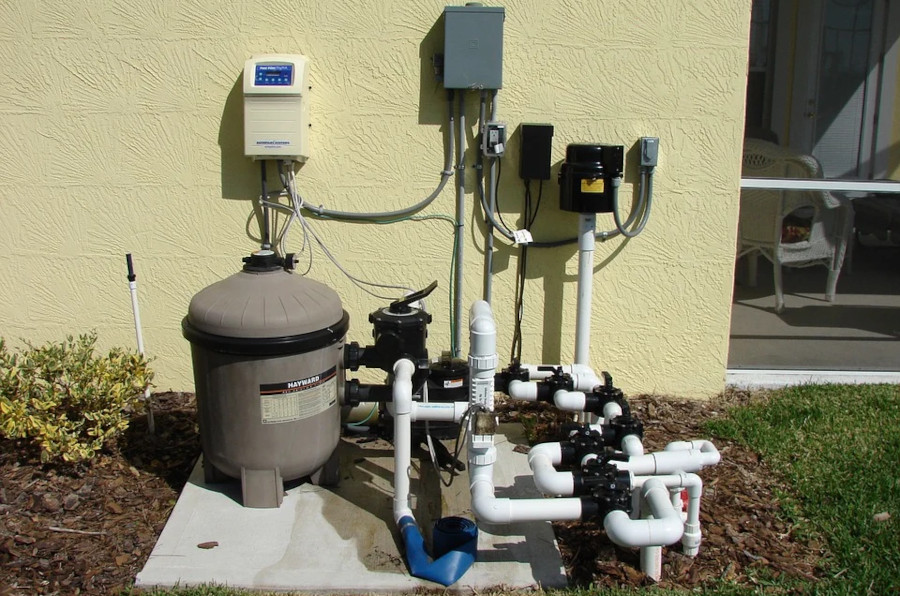Useful Tips for Choosing the Right Water Filtration System
Water is a source of life. It plays a crucial role in our well-being and is essential for our day-to-day home activities. But to enjoy all this, you need clean water. Water needs to undergo a series of filtration stages before it's declared fit for human consumption. This is where a water filtration system comes in. Generally, the U.S. water source is among the best in the world. But it would help if you weren't too trusting with this. Anything can happen: pipe bursts, unexpected contamination, systems failure - the list is endless! Many brands provide water filtration solutions, and you can choose from the list of available filters. To avoid making any mistakes when choosing your filtration solution, adhere to the tips below.

1. Familiarize Yourself with POU and POE Systems
Most companies offer two types of water filters available for home use. Generally, POE systems treat the water that enters your home and connect to a water meter or water storage tank. However, POU systems only treat water at your consumption points, such as a sink or bathroom faucets. So, which one should you install? The team at Wellness Water Filtration Systems recommends going for both, but more importantly, the POU system. The advantage being that POU filters can be installed inline or attached externally. If a POU filter is installed inline, it filters all the water passing through a pipe.
2. What Contaminants Are You Trying to Filter?
Once you realize your water has contaminants in them, it's time to check what filter fits your situation. But before you head out shopping, you should understand that many brands sell different types of filters. For this reason, they employ salespeople to assist you in making a 'good' choice. However, these salespeople will almost tell you anything to sell a particular brand. This is why you should endeavor to check claims and read the product description carefully. Also, please do your research to ensure the filter carries its intended purpose before buying. You should not assume that just because a specific type of filter removes a particular contaminant can also remove others.
3. Check the Flow Rate of Your Faucets and Dispensers
It's common to see many homeowners buying water filters without first checking their faucets' flow rates. Not only is this a costly mistake, but it also leads to pressure variation. If your faucets' flow rate is less than that of water filters, leakages and hose bursts can happen. If the taps' flow rate is higher than the water filter, this can reduce the water flow. Over time, it may cause increased choking due to air filling. Additionally, the variation in flow rate of water filters and your faucets can impact your filter cartridges and lower their longevity. Remember to check the flow rate of your faucets and get a water filter that matches it.
4. Check the Certification
Ensure the filter you purchase is certified by ANSI (American National Standards Institute). It should also be approved by accredited bodies such as NSF or WQA Gold Seal. The filter should be designed to eliminate the contaminants found. Once you understand what contaminants are present in your water, it's easy to choose the ideal filter. You can also use the WQA or NSF's website to check if the filter you want to purchase is certified. These websites ask for the brand, manufacturer, and relevant information to confirm the filter's safety. Once you key in all the information, you'll have everything you need.
5. The Cost

A water filter price can vary based on its features, type, technology, output, etc. You can find some models for under $30 to sophisticated systems costing thousands of dollars. The latter even require professional installation as they're too complex for the average DIYer. Also, you need to consider the ease of maintenance, such as replacing filter cartridges. This is why budgeting is essential.
6. Do You Have Personalized Water Goals?
Once you test your water and know the contaminants present, you need to set personalized water goals. What are your home water goals? Do you want to filter all the water used in your home? Or perhaps you only want to filter the drinking water? Depending on your goals, you can have the water filtered at any point of entry. Generally, point-of-use water filters are standalone devices. On the other hand, point-of-entry water filters are installed where the water enters your home. Based on your budget and goals, choose what system best solves your needs.
Checking the contaminants present in your water, assessing the flow rate, and setting a budget are critical factors you need to consider when purchasing a water filtration system. Remember to check the list of contaminants the water filtration system can purify. Check for the credibility of the manufacturer by reading online reviews or inquiring from local plumbers. Over to you!